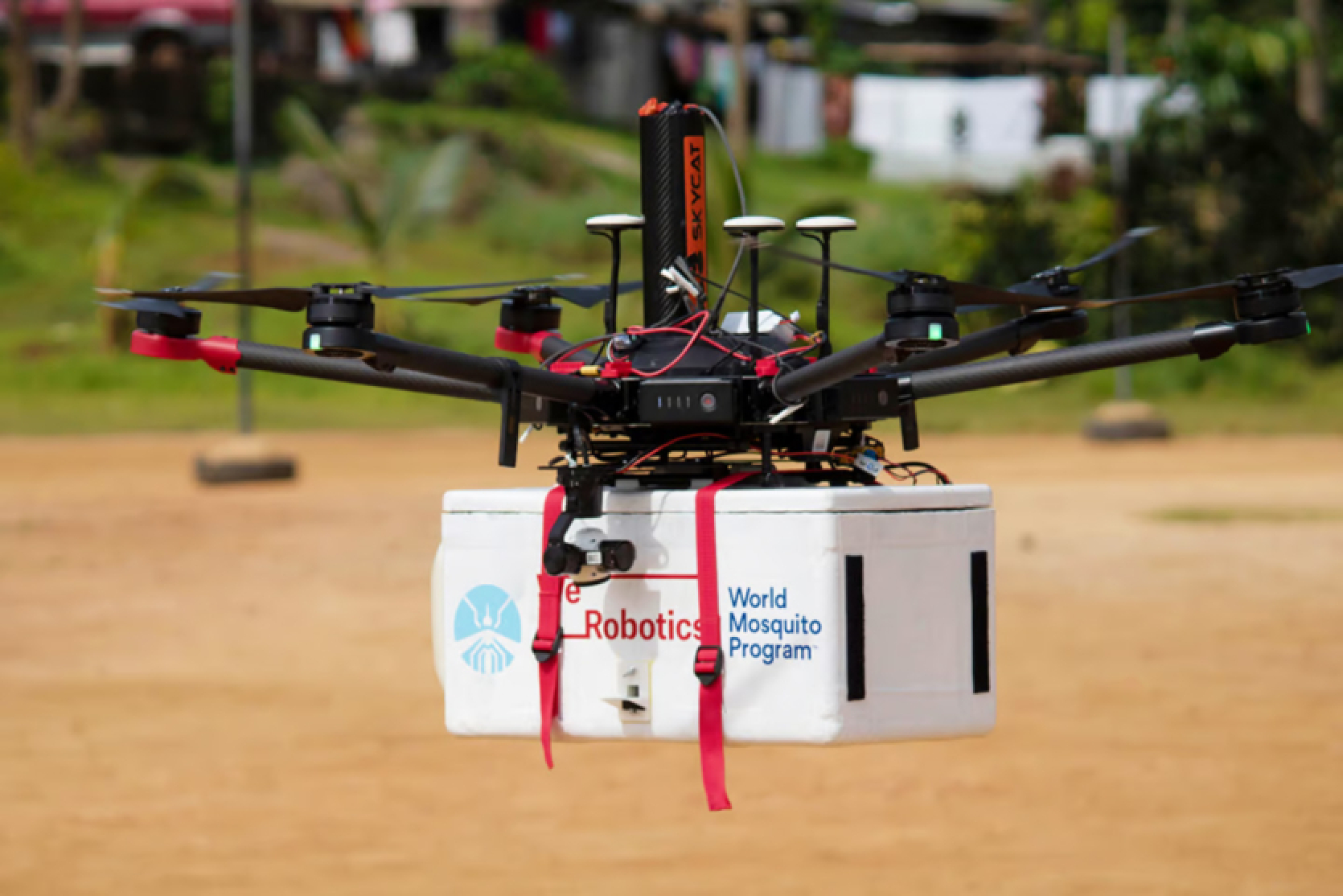Researchers have tested the aerial release of mosquitoes infected with bacteria that combat disease. According to WHO data, dengue fever affects 390 million people annually.
The dissemination of infected mosquitoes via drones has been associated by conspiracy theorists with attempts to spread diseases, but scientists aimed to do the opposite. In this study, mosquitoes were infected with the Wolbachia bacteria, which prevents the virus that causes dengue fever from replicating.
This is not the first attempt to utilize mosquitoes in the fight against diseases. Previously, scientists genetically modified mosquitoes so that the malaria parasite could not thrive in their gut. These mosquitoes are resistant to all four strains of the dengue virus and have lost the ability to detect humans as a blood source.
Delivering modified mosquitoes into the wild can be quite challenging. Currently, they are released directly by individuals on-site. This requires reaching remote and potentially hazardous areas. Drones are well-suited for this task.
Researchers led by Ya Sun Lin from the World Mosquito Program (WMP) based in Melbourne, Australia, have employed this very approach. The drone delivery system designed by Lin and his team can transport 160,000 adult mosquitoes. The insects are secured to the drone in a chamber with controlled temperature and humidity to keep them healthy and calm during transport. Along the route to the destination, the drone releases groups of 150 mosquitoes, dispersing them over a large area.
During two field trials conducted in Fiji, Lin and his colleagues observed that this method of distribution was as effective as traditional methods of release. Operators managed the drone from a safe, remote location, rather than suffering in the jungle. The mosquitoes efficiently spread the bacteria over an area of two square kilometers.
The spread of Wolbachia-infected mosquitoes in Indonesia has previously led to a 77% reduction in dengue fever transmission. This new method of tackling the virus allows for mosquito deployment over extensive regions. The study was published in the journal Science Robotics.
Source: New Atlas














Comments (0)
There are no comments for now